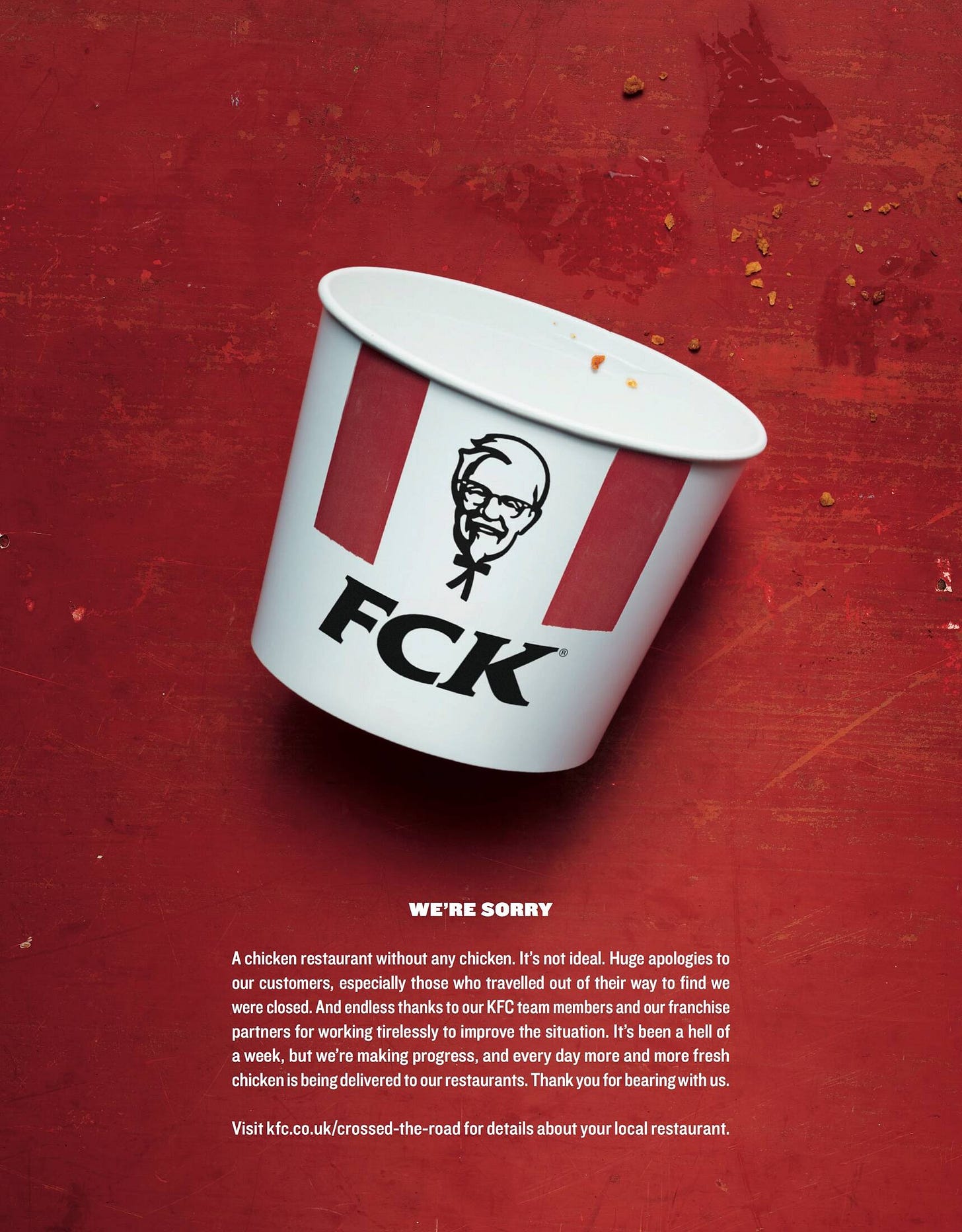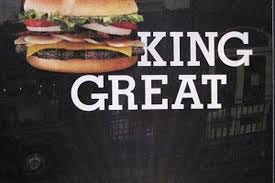Back when we recorded the very first episode of Brave New Word, we started with a bloody good question: is it ever good to swear in copy?
We asked Charlie (ChatGPT) and, true to form, he gave the fence-sitting answer: “It depends on your brand, audience, and context.”
Equivocal answers are not our bag but, despite this, we kept Charlie on the staff.
Martin’s take was simple: don’t do it. As a classic, occasionally foul-mouthed Brit, he’d tested it on his email list. Even when it sounded more like his actual way of speaking, people did not like it. Swear words generated more complaints than anything else he’d written. And the man writes a lot.
He brought up the comedian Frank Skinner. Many of Skinner’s funniest routines were, in his own words, knob jokes. In his repertoire, a veritable butcher’s window of prime profanity. But as an experiment he cut all of the swearing from his live shows, and found audiences loved it just as much. Now he’s put the swearing back in, but it’s sprinkled throughout: a seasoning, rather than the main course.
My take (as in the episode) is that, if you have to stop and think carefully about whether to swear, it’s already contrived and you should take it out. Copy is considered language, not instinctive blurting. Planned profanity does not work in copy.
Except.
Swearing without swearing
Since that episode, I keep coming back to the time when KFC said FCK.
When KFC’s entire UK arm ran out of chicken, they ran a full-page ‘apology’ ad. It was simply their iconic bucket with their logo rearranged to spell FCK.
It remains one of my favourite campaigns of all time.
The reason it works is because there is no swear word. It’s a finger-lickin’ paragon of minding the gap, one of my favourite topics: the joke only works because the audience has to fill in the (literal) missing piece. The word is created in the mind of the reader. They shock themselves, in a way.
It also works because it’s KFC, and they’re good at cheeky, and pulled off self-deprecating in a way few brands are brave enough to try.
Other brands have played with the idea. Strangely, the examples that come to mind are also purveyors of greasy food: Burger King gave it a go by using ‘king’ as a fragment, as in, ‘f**king delicious’:
You might not believe this, but it’s not even close to Burger King’s worst ad.
Wendy’s tried it with ‘Son of Baconator’, using a bleep to make the audience fill in the gap. It sort of works, but is nowhere near as artful or memorable as the KFC campaign. In fact, I’d say it’s terrible. But that’s a topic for another day.
Ultimately, it’s the implication that we respond to, rather than the word itself. Why?
It’s in your head
Pop psychologist Steven Pinker (among others, I’m sure) argues that taboo words get their power because they bypass rational thought tap into our primal response. In speech, that’s what gives swearing its punch.
But in copywriting, words aren’t fleeting. They linger on the page and lingering robs profanity of its punch. In speech, the word evaporates and the post-shock tingle remains. In writing, the word remains to be re-read and diluted.
Of course, it happens in speech when that speech is part of a media production. Scale matters, saturation matters, even reruns and repeats matter. Think about how Gordon Ramsay has become a caricature of himself and sweary chefs. Or how Quentin Tarantino dialogue is now just a parody of Quentin Tarantino dialogue. So far I’ve focused on print, but these are cautionary tales for audio and visual ads, too.
It’s more than just over-use. It’s because swearing is a very cheap and easy way to get attention. We copywriters know all about cheap and easy ways of getting attention, and should be above all of them. In all but a few circumstances, swearing is a sign of lazy writing.
Beer pressure
It’s worth noting that as a working copywriter, you’re almost never asked to swear. I can’t think of a single brief that’s told me profanity is OK, much less given an instruction to use it.
At best, it sneaks into a brainstorm, when someone who’s had a few beers says, “What if we went really edgy?” And that may be how the KFC idea started, who knows. But in practice, it rarely makes it out of that room. Because when the moment comes to commit words to print or script or screen, a swearword almost never feels like the smartest choice. Write drunk, edit sober, as they say.
If you’ve been presented with a brief that condones and/or encourages swearing, that is a big red flag. If it’s an idea you’ve had yourself to make something edgy, stop. You’re being lazy and you can do better.
Please, just don’t
Back in the pilot, Martin and I came down hard on “don’t do it”. I think we were mostly right.
The exception—and it truly is an exception—is when the swearword is inseparable from the creative idea. Even then, you need to mind the gap: the word itself should never appear anywhere except in your reader’s head.
If you want to hear the full back-and-forth (including Charlie’s overly long verdict), the episode’s here: Listen to BNW Episode 1.
Enjoy this? Forward it to someone and encourage them to subscribe!




